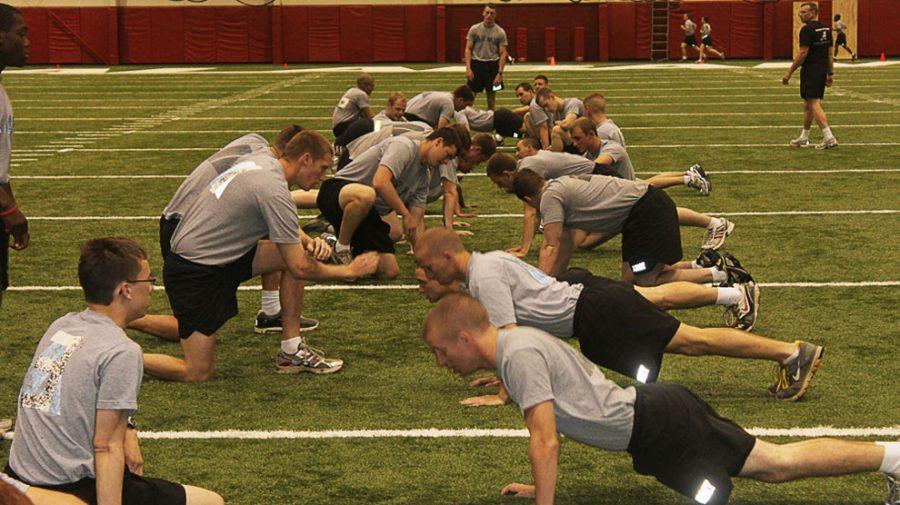Through a maturing process four years long, the University of Alabama’s Reserve Officers’ Training Corps (ROTC) has been helping young men and women prepare to be officers in the military for over 150 years.
Through activities such as leadership labs, field training exercises and camps, these young cadets gain valuable leadership skills that can help them both in the military and in civilian life.
While one may think the reason these young men and women join the ROTC comes from the prospect of attaining a scholarship that covers full tuition as well as extra money for books, the reality is that only about 10 scholarships are given to incoming ROTC members each year.
What really makes these cadets choose to enter the ROTC?
Cadet Charlie Stimpson, a senior MS-4 majoring in theatre, said his decision to become an ROTC cadet came naturally.
“My entire family has been in the military,” Stimpson said. “I like the Army, and I have the desire to put the needs of my country and my fellow Americans before my own.”
Cadet Greg Rhodes, a senior MS-4 majoring in geography, said his decision to enter the ROTC was very similar to Stimpson’s.
“Since I was little, I wanted to follow in my father’s and grandfather’s footsteps,” Rhodes said. “It’s a family tradition.”
Though many ROTC cadets have similar situations, both Stimpson and Rhodes pointed out that not everyone chooses the ROTC for those reasons.
“The cadets in the batallion here, as well as all over the country, are varied,” Rhodes said. “Not only do you find people like me who want to serve, but you also have people who want to gain leadership skills and go on into the workforce instead of the military.”
Lieutenant Colonel Jim Shaver, professor of military science, said the program is always looking for young men and women who want to serve their country and who are looking for great leadership opportunities within the ROTC.
“We’re looking for three things in our cadets: scholars, athletes and leaders,” Shaver said. “Of course, cadets must be physically fit, but we like for them to also excel academically and have leadership experience.”
Being a member of ROTC requires an immense amount of dedication, and Shaver insisted that, to his cadets, joining the ROTC was not about the scholarships available, describing them as simply “positive by-products.”
“All of my cadets will walk out with a degree and a commission from the Army, which is more than most college students can say upon graduation,” Shaver said. “Most are also walking out with little to no debt [in student loans].”
While there are many benefits to being a member of the ROTC, such as a broadened job spectrum and small amounts of student loans, Shaver, Stimpson and Rhodes all agreed the main things cadets walk away with are the leadership skills gained and the bonds made within the four years in the ROTC.
“The military is like a brotherhood in that we come together and make sure each other is taken care of,” Stimpson said. “We mentor other cadets in the battalion and help them become leaders, because we’re learning and adapting together. That’s what [the ROTC] does.”
Rhodes agreed that all cadets help to set examples for one another.
“That’s why they call us ‘brothers in arms,’” Rhodes said. “We help each other become what we need to be in order to reach our goals.”









